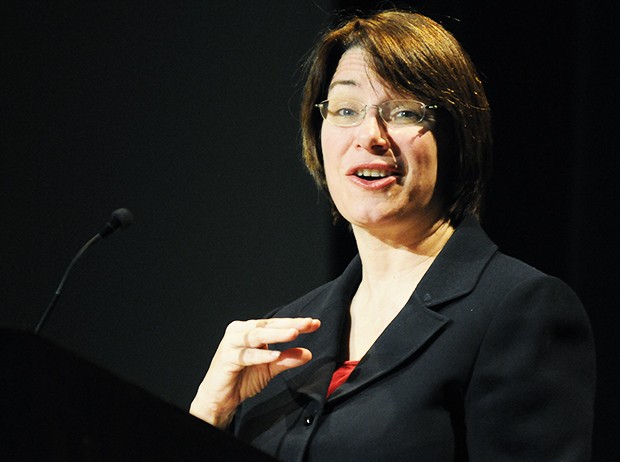Addressing health disparities means addressing a broad issue. At a public health forum Friday, speakers were invited to address the current need for health care reform to alleviate the inequity among people of differing races, socio-economic statuses, genders and geographic locations in the United States. John Finnegan , dean of the University of Minnesota School of Public Health âÄî sponsor of the forum as part of its roundtable series âÄî said the record number in attendance reflected the importance of the subject. âÄúThere cannot be too much discussion on this topic,âÄù he said. Similar to a presentation she gave at a national summit on health care reform last November, Sen. Amy Klobuchar, D-Minn. , focused on a transition from quantity to quality health care. She said the United States currently spends 17 percent of its budget on health care, but 47 million people still do not have coverage. She said cutting costs and improving access could help the nation recover economically. The senator had qualms about the differences in health care funding across the nation by programs such as Medicare. Citing data from the Dartmouth Institute for Health Policy and Clinical Practice, Klobuchar noted in 2005, Medicare spent about $15,000 per patient in Miami and about $7,000 per patient in Minneapolis. Another study performed in 2008 by the Dartmouth Institute found Medicare could save about $50 billion over a five-year period if it used the Mayo Clinic model, which reduces excessive spending on chronically ill patients in their final years, Klobuchar said. Jeffrey Korsmo, executive director of Mayo Clinic Health Policy Center, who also spoke Friday, said Mayo does not ration care for patients, but instead communicates with patients and their families to decide what is best, which may mean forgoing further treatment.
Health care for the âÄò51st stateâÄô
Dr. Michael Trujillo, the health research director for the Inter-Tribal Council of Arizona, where he works to improve health care for American Indians, offered perspective on the relationship between the federal government and recognized tribes, and how access to decent health care is being addressed. Trujillo mentioned the Indian Health Service, an agency within the U.S. Department of Health and Human Services , which works between American Indians, Alaska Natives and the federal government to provide health care. He emphasized IHS has to be included in the national health care reform debate. âÄúThe federal government relationship to tribes must be recognized in any process that goes on at the national level,âÄù he said. There is a possibility that federally recognized tribes or the IHS would receive funding as if they were a part of a 51st state.
A missed opportunity
In an interview prior to the event, Dr. Rhonda Jones-Webb , associate professor of epidemiology and community health, said the School of Public Health wanted to sponsor a discussion targeted specifically at health equity. Jessica Zeglin and Juliet Massie , graduate students in the School of Public Health, said they would have liked the forum to be more focused on that topic. Massie thought the speakers missed an opportunity to address specific ways to approach health equity in Minnesota. Though Trujillo spoke to disparities between American Indians, Alaska Natives and white Americans, Massie wished other, more local minorities would have been included. Zeglin was glad the issue was raised and hoped the event would at least spark further discussion of the issue.


